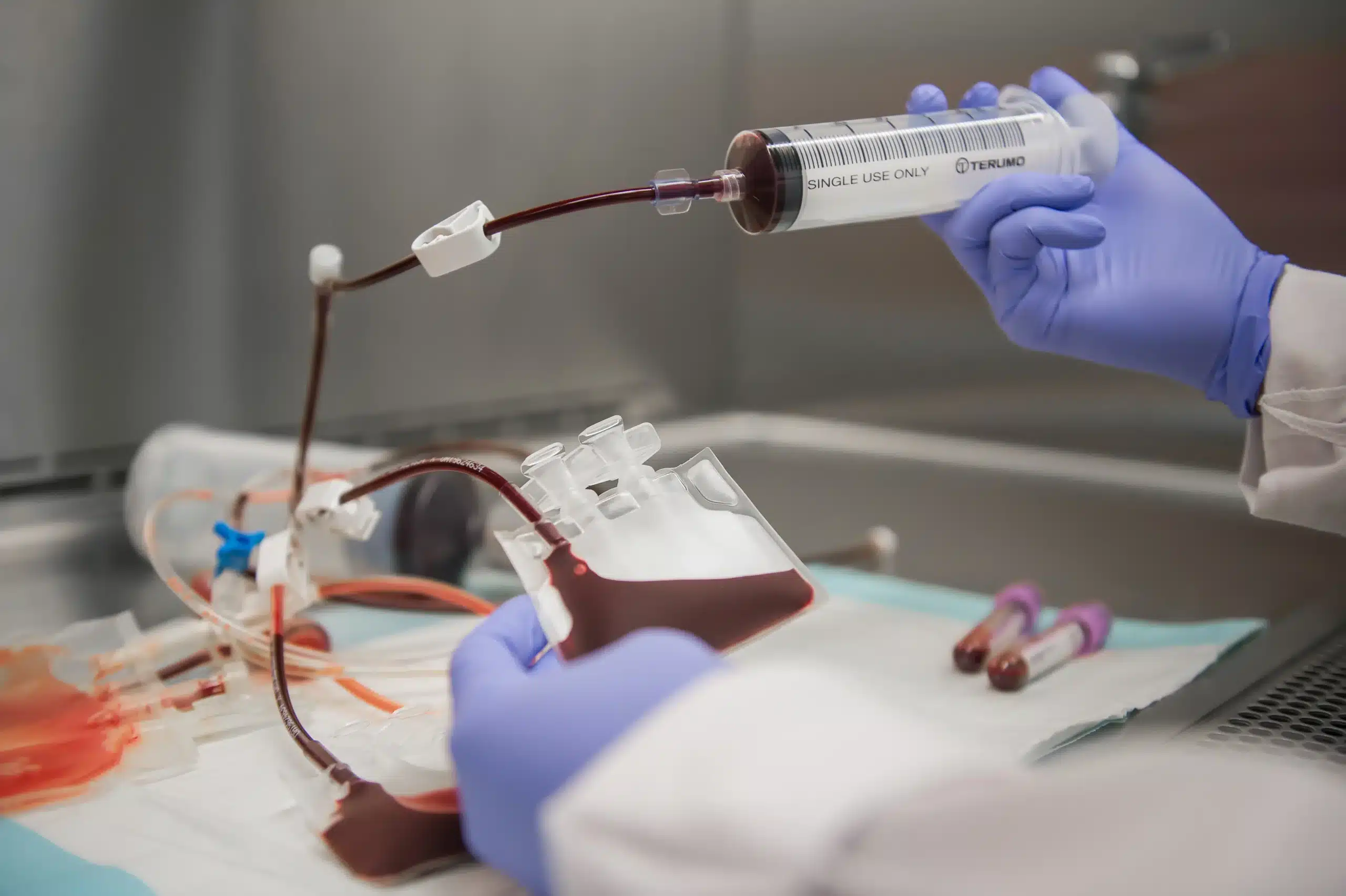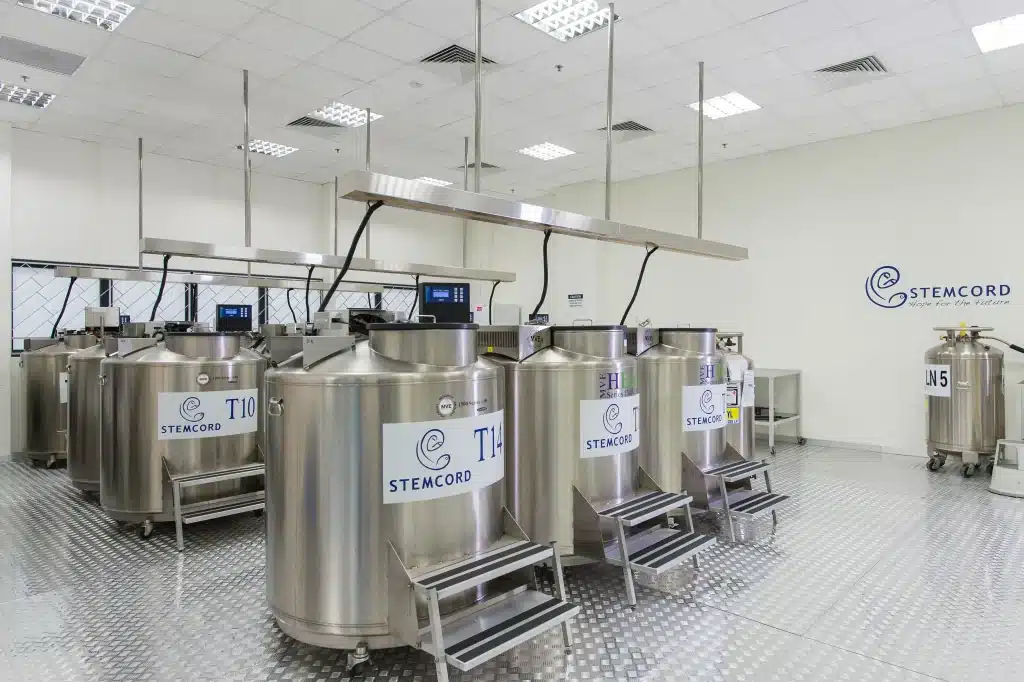In Nov. 2023, a 19-year-old in the U.S. was cured of Hodgkin’s lymphoma using his own cord blood, stored by CBR since birth⁴. The successful transplant after failed chemotherapy shows the long-term value of private cord blood banking.
How Long Is Cord Blood Good For?
A Complete Guide to Storing Cord Blood
Cord blood banking has emerged as a critical advancement in medical science, offering families an opportunity to store potentially life-saving stem cells. If you’re considering banking your baby’s cord blood, you might be asking, How long is cord blood good for? This is a common and important question for parents weighing their options.
What Is Cord Blood and Why Is It Valuable?
Cord blood is the blood collected from a newborn’s umbilical cord after birth. It is rich in hematopoietic stem cells, which have the ability to regenerate to different types of blood cells. These cells have been used in the treatment of over 80 diseases¹, including leukemia, lymphoma, sickle cell anemia, and metabolic disorders.
Cord blood stem cells are adaptable, making them an excellent alternative for transplants and regenerative medicine². With ongoing research into new therapies, the potential uses for cord blood are expanding rapidly.
How Long Is Cord Blood Good For?
One of the primary concerns parents have when considering cord blood banking is its longevity. How long is cord blood good for? Research and industry standards suggest that properly stored cord blood remains viable for decades.

Cryopreservation and Longevity
Cryopreservation is the process of freezing cord blood at ultra-low temperatures to preserve its quality and viability for future use. When the temperature reaches negative 180°C or colder, the stem cells are cryopreserved in Vapour Phase Liquid Nitrogen³.
Scientific Evidence on Storage Duration
Recent research shows that cryopreserved cord blood stem cells remain viable for up to 23.5 years5. In fact, many scientists agree that when cord blood is properly cryopreserved under stringent conditions, the stem cells may retain their functional potential indefinitely. This reinforces the long-term value of cord blood banking as a reliable biological resource for future medical use.

Thus, if you choose a reputable cord blood bank,
you can trust that the stored sample will remain viable for decades, giving you peace of mind.
Should I Keep Cord Blood?
With the rising popularity of cord blood banking, many parents ask themselves, Should I store my baby's cord blood? The decision ultimately depends on your family’s medical history, personal preferences, and financial considerations.
Your Family’s Medical History
If your family has a history of conditions like leukemia, lymphoma, sickle cell anemia, or certain immune system disorders, storing cord blood might be a valuable safeguard. The stem cells found in cord blood can be used in treatments for over 80 serious diseases¹ and might one day help a sibling or family member in need.
Potential for Future Treatments
The field of regenerative medicine is growing rapidly, with promising research into using cord blood stem cells to treat conditions such as: autism, cerebral palsy, diabetes and heart disease1.
Private Banking vs. Public Donation
You have two main options:
Private cord blood banking:
Cord blood is securely stored exclusively for your family, ensuring immediate access for future medical needs.
Public cord blood donation:
Donated cord blood is made publicly available to anyone in need. You may not get access later, even if you were the original donor.
Private cord blood banking:
Cord blood is securely stored exclusively for your family, ensuring immediate access for future medical needs.
Public cord blood donation:
Donated cord blood is made publicly available to anyone in need. You may not get access later, even if you were the original donor.
Benefits of Storing Cord Blood
The benefits of storing cord blood are vast and can have life-saving implications. Here’s why many parents choose to bank their child’s cord blood:
Life-Saving Potential
Cord blood is a proven treatment for numerous diseases, including certain cancers and immune system disorders1. If a family member requires a stem cell transplant, having stored cord blood can provide a readily available match.
Non-Invasive Collection Process
Collecting cord blood is completely painless and risk-free for both the baby and the mother.
Immediate Availability
If a medical emergency arises, having cord blood stored in a private bank allows for immediate retrieval, eliminating the need to search for a matching donor.
Compatibility for Family Members
Cord blood is a perfect match for the baby and has a higher probability of compatibility with siblings1. This increases the chances of a successful transplant if needed in the future.
Potential for Future Treatments
Ongoing medical research continues to explore new ways cord blood stem cells can be used, including treatments for neurological disorders, heart disease, and spinal cord injuries1. Storing cord blood today may provide unexpected benefits in the future.
How to Choose a Cord Blood Bank
If you decide to store your baby’s cord blood, selecting the right cord blood bank is essential. Here are the key factors to consider:
Accreditation and Certifications
Ensure the cord blood bank is accredited by reputable organizations such as FACT (Foundation for the Accreditation of Cellular Therapy), which sets international standards for cord blood collection, processing, and storage.
Track Record and Reputation
Research the bank’s history, success rates, and customer reviews to ensure it meets industry standards.
Storage Facilities and Technology
Reputable cord blood banks use state-of-the-art cryopreservation technology and maintain secure backup storage to protect against power failures or disasters.
Pricing and Payment Plans
Private cord blood banking comes with costs, including an initial collection fee and annual storage fees. Look for banks that offer flexible payment plans and compare pricing.
Final Thoughts: Should I Store My Baby's Cord blood?
Deciding whether to bank your baby’s cord blood is a deeply personal choice. With its ability to treat life-threatening diseases and potential applications in regenerative medicine, cord blood is a valuable medical resource. If you have family health history or want to prepare for future medical advancements, storing cord blood could be a wise decision.
How long is cord blood good for? Decades—when stored under proper cryopreservation conditions.
If you are still wondering, Should I keep cord blood? consider the potential benefits it offers for your child and family members.
Take Action Today!
If you’re ready to secure your baby’s future, contact a trusted cord blood bank and explore your options. Investing in cord blood banking today may provide life-saving benefits tomorrow!

For more information on cord blood storage and its benefits, visit StemCord.
Frequently Asked Questions
Today, scientifically it is proven that the storage of cord blood can stretch over 23.5 years5.
There is no known expiration date for properly stored cord blood. As long as it is stored under controlled conditions, it remains viable for use.
Cord blood banking is a valuable investment for families with a history of medical conditions that can be treated with stem cells. It provides a ready-to-use option in case of future medical needs.
The cost varies by bank, but private banking generally involves an initial collection fee and annual storage fees. Many banks offer payment plans to make it more affordable.
Yes, cord blood has a higher likelihood of compatibility with siblings, making it a valuable option for family members who may need a stem cell transplant1.
Look for accredited banks with a good reputation, advanced storage facilities, and flexible pricing options to ensure the best quality service.
Reference Links
1https://parentsguidecordblood.org/en/diseases
2https://www.dukehealth.org/blog/value-of-saving-umbilical-cord-blood
3https://www.selectscience.net/article/the-benefits-of-vapor-cryogenic-storage-vs-liquid-storage
4https://parentsguidecordblood.org/en/news/cured-his-own-cord-blood-19-years-later
5https://parentsguidecordblood.org/en/news/how-long-can-cord-blood-be-stored
6https://pubmed.ncbi.nlm.nih.gov/25219638/
The full list of diseases can be obtained from https://parentsguidecordblood.org/en/diseases
Banking cord blood does not guarantee that the cells will provide a cure or be applicable for every situation. The treating physician will determine the ultimate use. There is no guarantee that the umbilical cord blood will be a match for a family member or will provide a cure. Autologous cord blood stem cells will not guarantee suitable treatment for all inherited genetic diseases. As with any transplant therapy, therapeutic success depends upon many factors beyond the stem cells themselves including patient condition, type of disease, recipient-donor relationship and matching, and other factors. The use of cord blood stem cells for emerging treatments is experimental. Please consult your physician.
24 Hour Hotline
(65) 6471 2002
24 Hour Hotline
(65) 6471 2002
